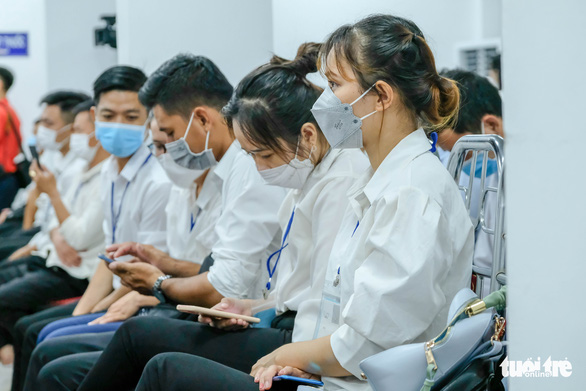Foreign workers who overstay their South Korean work visas may face up to three years in prison, as well as fines and restrictions on re-entry into the country, a South Korean human resource official recently warned.
In addition to possible jail time, foreign workers who overstay their visas in South Korea could be fined up to 30 million won (US$21,200) and barred from entering the country in the future, according to Yun Jae Yeon, chief of the Representative Office of the Human Resources Development Service of Korea (HRD Korea) in Vietnam.
The warning was released amid the concerns that Vietnamese guest workers in South Korea might overstay their work visas or illegally take jobs outside of what their visas permit during the final months of 2022, when many South Korean small- and medium-sized enterprises are typically in need of workers.
South Korea applies different quotas for the recruitment of foreign workers from different countries, depending on the illegal residence rate of each country’s workers in South Korea, as well as employer preferences.
In order to secure a high quota, countries must take measures to minimize the number of their citizens who overstay visas in South Korea, according to Yeon.
Currently, South Korean authorities have placed a temporary suspension on the recruitment of workers from eight Vietnamese localities, each of which has 70 or more workers illegally living in South Korea and registers an overstay worker rate of 27 percent or higher, according to the official.
These localities include Nghi Xuan and Cam Xuyen Districts in Ha Tinh Province; Chi Linh City in Hai Duong Province; Nghi Loc District, Hung Nguyen District and Cua Lo Town in Nghe An Province; and Dong Son District and Hoang Hoa District in Thanh Hoa Province.
The suspension, which will last until the end of this year, is based on regulations included in the Employment Permit Program for Foreign Workers (EPS) signed between the two countries in 2008, under which South Korea agreed to receive migrant workers from the Southeast Asian country.
HRD Korea has asked both the government of Vietnam and relevant agencies to keep a close eye on the issue, said Yeon, adding that the South Korean Ministry of Justice and Ministry of Employment and Labor are currently carrying out inspections of South Korean companies that employ foreign workers.
Yeon also noted that Vietnamese workers who return home once their visa has expired will likely be able to work in South Korea again in the future.
In order to help migrant workers re-acclimate to repatriation, South Korean agencies offer vocational and Korean language training, business start-up courses, and employment introduction services, the official said.
Nguyen Gia Liem, deputy director of the Department of Overseas Labor, under the Ministry of Labor, War Invalids, and Social Affairs, has asked domestic recruiters to carefully select which individuals to work in South Korea, give them adequate training and legal consultation, and provide them with necessary assistance during their working terms.
Such actions will help prevent workers from overstaying their visas or fleeing their designated employers in order to secure illegal employment elsewhere, Liem said.
As per current regulations, those Vietnamese who wish to work in South Korea must put down a VND100 million ($4,430) deposit before they leave for the East Asian nation.
This deposit is lost should the worker overstay their visa or breach their contract.
Like us on Facebook or follow us on Twitter to get the latest news about Vietnam!




















































